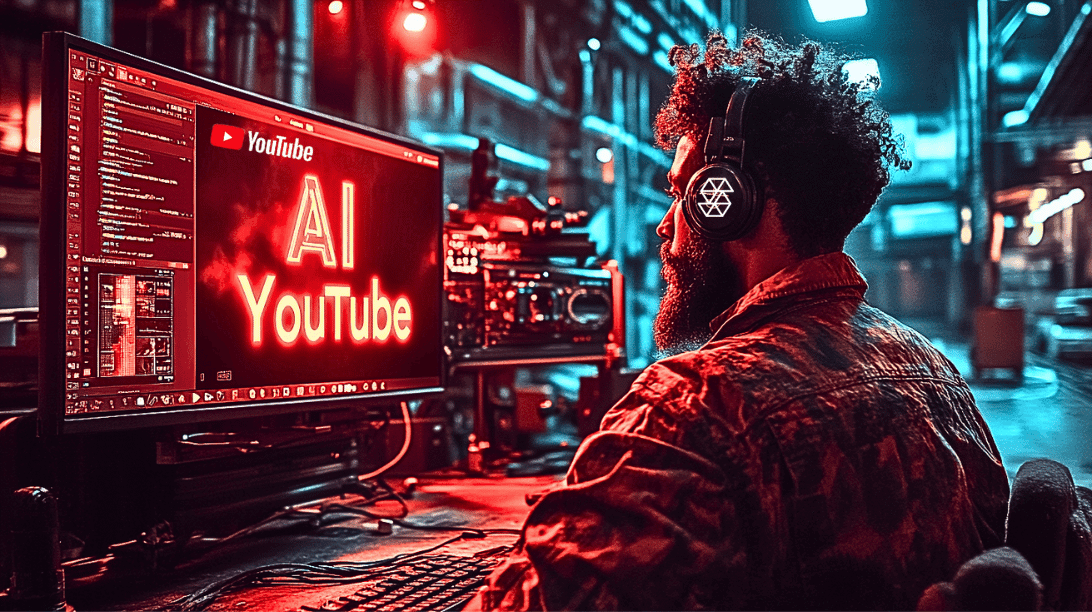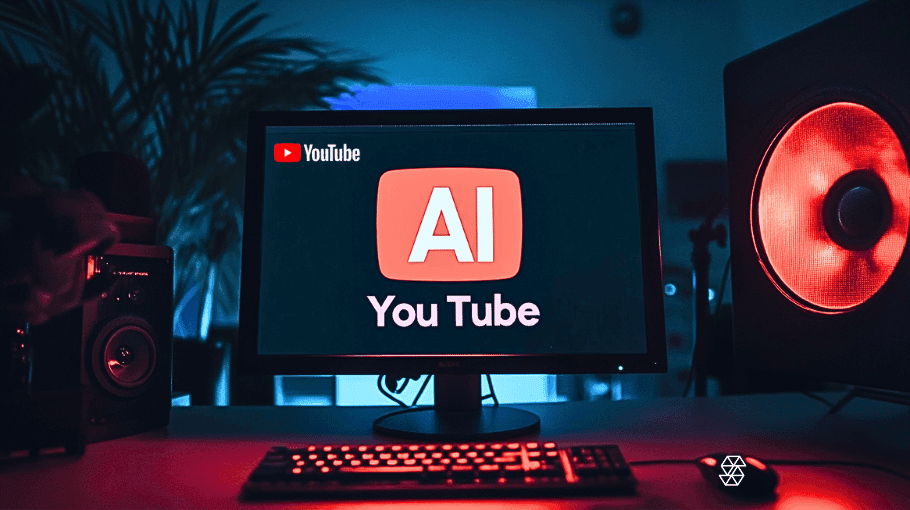Skim AI’s Top 10 AI Predictions & Trends for 2024
As we step into 2024, the landscape of artificial intelligence is undergoing a seismic shift, ushering in a future rich in innovation and challenges. The year 2024 is poised to be a defining moment in AI’s history, with groundbreaking developments reshaping everything from content creation to search engines, and stirring regulatory and ethical debates.
To close out the year, we’ll delve into ten pivotal AI trends and predictions that are set to redefine the AI landscape, offering insights into the transformative power and potential pitfalls of these rapidly evolving technologies.
- 1. It will be the year of multimodal and interactive AI
- 2. There will be more investigations into OpenAI
- 3. Microsoft becomes one of the big AI players
- 4. Text-to-video will continue to transform the film industry, replacing some filmmakers, actors, and writers
- 5. AI will replace some YouTubers
- 6. Perplexity AI dominates generative search and outperforms Google
- 7. Increased regulation and AI copyright lawsuits
- 8. A rise in AI scams and deepfakes
- 9. Midjourney, Runway, and Elevenlabs emerge as household names
- 10. Surge in popularity of ChatGPT and LLMs
- 2024 – The Biggest Year for AI
1. It will be the year of multimodal and interactive AI
The future of artificial intelligence is being shaped by the emergence of multimodal, interactive large language models, known as “interactive AI.” This new form of AI transcends traditional limitations by integrating text, images, and voice, facilitating more natural, intuitive interactions.
The shift from static to dynamic AI is exemplified by technologies like OpenAI’s DALL-E, which combines image synthesis with language understanding, and ChatGPT Vision, which enables the AI to understand images and voice. This evolution will revolutionize various industries, enabling AI to transform static data into dynamic insights. As interactive and multi-model AI becomes more widespread, it will redefine our interaction with technology and expand human capabilities in unprecedented ways.

2. There will be more investigations into OpenAI
The regulatory landscape surrounding AI is becoming more complex, as exemplified by the Competition and Markets Authority’s (CMA) recent focus on the partnership between Microsoft and OpenAI. This development in the UK, particularly in the context of Microsoft’s significant investment and OpenAI’s status as a leading AI entity, reflects a growing global trend of regulatory scrutiny.
The CMA’s interest is not just in the financial aspects but in the broader implications of such partnerships on competition and innovation in the AI sector. This attention from regulators is a sign of the increasing influence and reach of AI in various industries, as well as the increased government involvement we will see in 2024 around the globe.
3. Microsoft becomes one of the big AI players
Microsoft’s deepening involvement in the AI space, highlighted by its collaboration with OpenAI, signals its ascent as a major player in this field. Recent developments, such as the unveiling of a custom AI chip developed with OpenAI’s input and securing a non-voting board seat at OpenAI, reinforce Microsoft’s commitment to AI.
These moves, along with its AI-enhanced products like Bing and Copilot, demonstrate Microsoft’s strategy to not only catch up with but also surpass competitors in the AI race. Microsoft’s approach appears to be one of strategic partnerships and technological innovation, positioning it at the forefront of AI development and application in 2024.
4. Text-to-video will continue to transform the film industry, replacing some filmmakers, actors, and writers
The development of text-to-video generators is revolutionizing the film industry, merging AI’s capabilities with human creativity. These tools can turn text into detailed videos, challenging traditional filmmaking.
With advancements in AI design and text-to-video platforms, the potential to replace certain filmmaking, acting, and writing roles is becoming more tangible. This transformation will also bring many ethical concerns, particularly around deepfakes, the potential loss of human creativity in content creation, and artists’ rights around their imaging. As these technologies evolve, they offer immense possibilities for filmmaking efficiency, yet necessitate careful ethical consideration.

5. AI will replace some YouTubers
The rapid advancement of AI in content creation, especially on platforms like YouTube, is leading to a significant shift where AI will replace some human YouTubers. AI tools are now adept at scriptwriting, video editing, and managing post-production tasks, which allows for a higher output of content at an unprecedented pace.
This trend is particularly prominent in segments with formulaic content or minimal creator-viewer interaction, making them susceptible to AI takeover. As AI continues to evolve, it will increasingly replace human roles in content creation, challenging the traditional dynamics of YouTube channels and leading to a landscape where AI-generated content becomes the norm.
6. Perplexity AI dominates generative search and outperforms Google
Perplexity AI is emerging as a formidable player in the generative search engine landscape, challenging established giants like Google. Founded by former Google AI experts, Perplexity AI focuses on delivering accurate and comprehensive answers across a wide range of user queries using advanced technologies like natural language processing.
The platform has already shown its potential to revolutionize search by providing precise, informative responses. Its ability to understand complex queries and fetch contextually rich answers will position Perplexity AI as a dominant force in AI-powered search engines, reshaping how we engage with digital information in 2024.
7. Increased regulation and AI copyright lawsuits
As AI continues to permeate various industries, it will face an increasing array of legal challenges and regulatory scrutiny in 2024. The EU’s AI Act, for example, is introducing new regulations tailored to AI technology, adopting a risk-based approach for AI systems in the market.
Alongside the Artificial Intelligence Liability Directive, these regulations aim to balance civil liability for AI across EU member states. In contrast, the UK is adopting a more incremental, sector-led approach to AI regulation, seeking industry feedback to guide its practices. Meanwhile, the US, under the Biden administration, has issued an executive order to evaluate and manage the safety, security, and associated risks of AI technology.
These regulatory developments are just the beginning and indicate a growing global effort to address the complexities of AI, including issues of cybersecurity, privacy risks, and the ethical use of AI in employment and other decisions. Furthermore, copyright infringement cases involving AI systems like ChatGPT and Google Bard highlight the increasing legal disputes we will see in 2024 over the use of copyrighted content in AI training and operations

8. A rise in AI scams and deepfakes
The proliferation of generative AI technologies will lead to a significant increase in scams and deepfakes in 2024, posing new challenges in digital security and information authenticity. These AI-generated scams and deepfakes will become indistinguishable from real interactions or media, complicating efforts to combat misinformation and digital fraud. The rise of such deceptive uses of AI underscores the need for enhanced detection tools and stricter measures to safeguard individuals and institutions from potential harm.
9. Midjourney, Runway, and Elevenlabs emerge as household names
Platforms like Midjourney, Runway, and Elevenlabs are set to become household names in 2024 as they lead the charge in AI innovation. These platforms offer unique AI-driven capabilities, from image generation to voice synthesis, making them integral to a wide array of applications in everyday life. As they gain more prominence and usage, they will play a pivotal role in shaping public perception and understanding of AI’s capabilities and potential.
10. Surge in popularity of ChatGPT and LLMs
The popularity of AI platforms such as ChatGPT and other LLMs will surge dramatically. As these AI models become more accessible and integrated into various digital services and platforms, a larger portion of the population will likely have direct experience with them. This increase in usage will not only demonstrate the practical applications of AI in daily life but also foster a broader understanding and familiarity with AI technologies among the general public.

2024 – The Biggest Year for AI
The year 2024 will stand as a landmark in the evolution of AI, characterized by groundbreaking advancements and increasing societal integration. From the rise of new AI powerhouses in generative search to the profound impacts on content creation and digital security, AI will continue to redefine the boundaries of technology and creativity.
As we witness a surge in AI adoption across the global population, the challenges of regulation, ethical use, and safeguarding against misuse will also become more pressing. The year 2024 will mark not just technological progress but a pivotal moment for shaping the future relationship between AI and human society.






